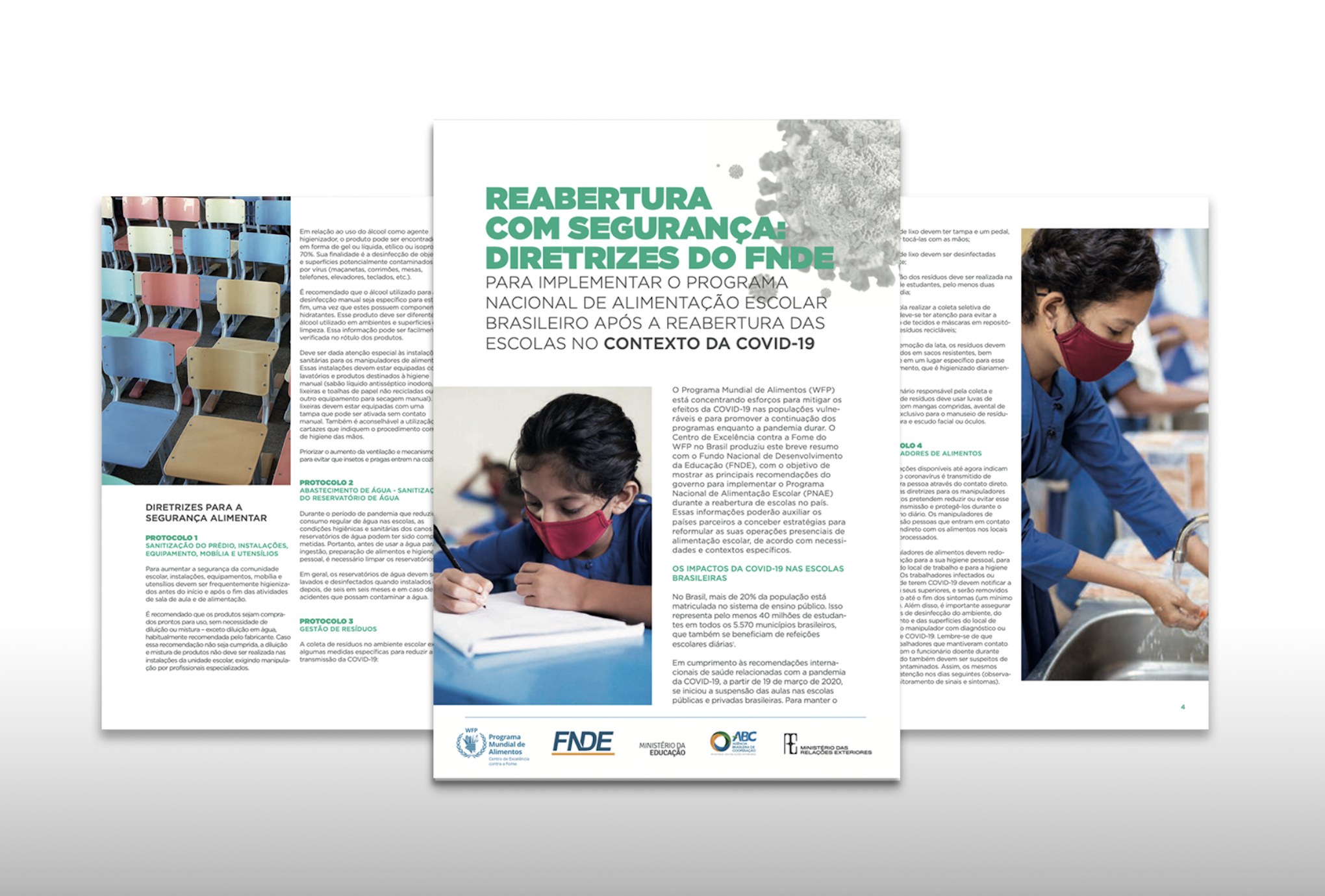
With the beginning of the pandemic in 2020, public and private schools in Brazil cancelled classes throughout the country as part of COVID-19 prevention measures. From the second semester of 2021, with the advance of vaccination and the establishment of safety protocols, most of the nearly 40 million children and adolescents enrolled in public schools in Brazil were able to attend face-to-face classes, either full-time or part-time.
To highlight the main recommendations of the Brazilian government to safely resume school meals services on-site, the WFP Centre of Excellence against Hunger in Brazil produced, in partnership with the National Fund for Education Development (FNDE), this summary, which points to the strategy of implementing the National School Feeding Programme (PNAE) during the reopening of schools in the country.
The document is based on FNDE publications and contains information that can help partner countries devise strategies to reformulate their face-to-face school feeding operations according to specific needs and contexts. The publication was produces in the context of the partnership between the Centre of Excellence and the Brazilian government, through FNDE and the Brazilian Cooperation Agency (ABC). The publication can be accessed here.
The PNAE during the pandemic
With schools closures, the PNAE adapted its regulations taking the needs of students into account and began to distribute food directly to families in the form of kits. They should follow the provisions of the PNAE legislation on nutritional and sanitary quality, respect regional eating habits and local culture and preferably contain fresh and minimally processed foods. This experience was detailed in the publication “Implementing the National School Feeding Programme in Brazil during the COVID-19 pandemic”, which can be found here.




